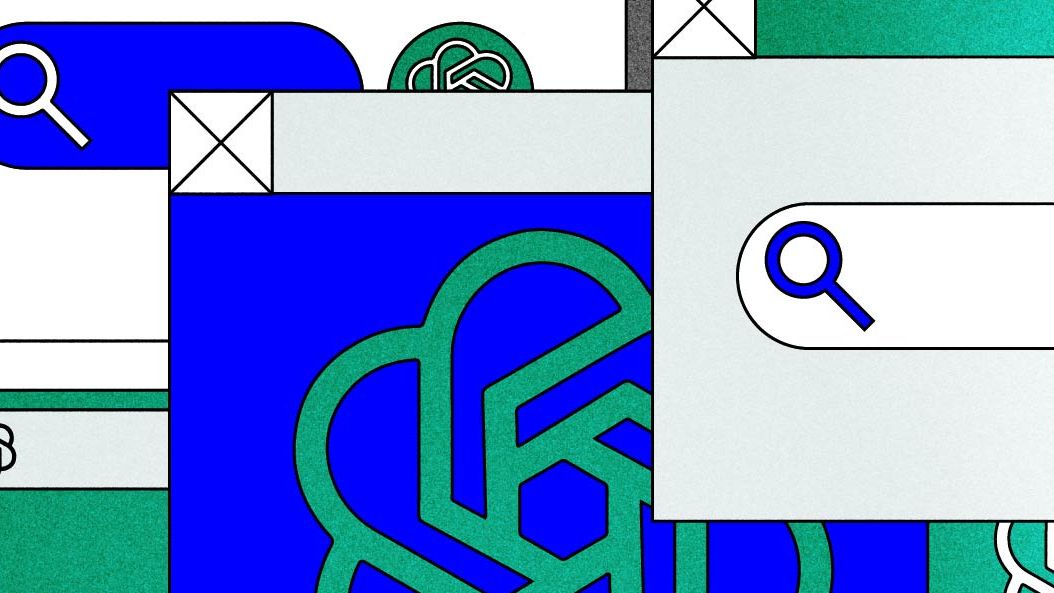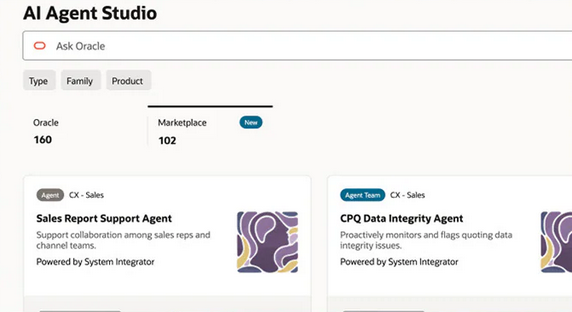The Browser Wars Reimagined: OpenAI’s Atlas Challenges Google Chrome with an AI-First Vision
For more than a decade, the way we navigate the internet has remained fundamentally unchanged. Dominated by giants like Google Chrome, the web browser has been a reliable but largely static utility—a window to the digital world, defined by tabs, bookmarks, and a search bar. But the ground is shifting. The rapid rise of generative artificial intelligence is poised to trigger a paradigm shift, and OpenAI, the company behind ChatGPT, is making its boldest move yet to lead this revolution.
OpenAI has officially announced the launch of Atlas, a new internet browser built from the ground up with AI at its core. This isn’t just another browser with a chatbot tacked on; it’s a fundamental rethinking of how we interact with information online. Atlas directly integrates the powerful capabilities of ChatGPT, introducing features like contextual AI assistance and autonomous agents that can perform tasks on your behalf. This launch signals a direct challenge to Google’s long-standing dominance and marks the beginning of a new, AI-driven era for web browsing.
During a livestream announcement, OpenAI CEO Sam Altman articulated the grand vision behind the project. “We think that AI represents a rare, once-a-decade opportunity to rethink what a browser can be about,” he stated. “Tabs were great, but we haven’t seen a lot of browser innovation since then.” With Atlas, OpenAI isn’t just entering the browser market; it’s attempting to redefine it entirely, shifting the focus from simply viewing web pages to collaborating with an intelligent partner to achieve goals online.

What is Atlas? A New Paradigm for Web Navigation
Atlas debuts at a critical moment, as the entire tech industry races to infuse generative AI into every facet of the user experience. Google, feeling the pressure, has already begun integrating its Gemini chatbot into Chrome, accessible through a “sparkle” button. However, while competitors are adding AI features to their existing frameworks, OpenAI is pioneering an AI-first approach.
The core difference is philosophical. In a traditional browser like Chrome, the primary experience is the search engine’s list of blue links. AI features are an optional layer on top. In Atlas, the AI is the central interface. When you search, you are first greeted with a comprehensive, chatbot-style answer generated by ChatGPT. The familiar list of website links, images, and videos still exists, but they are presented as secondary options, supplementary to the AI’s direct response. This inversion places the AI-powered conversation at the heart of the browsing experience, fundamentally changing how users discover and process information.
Ryan O’Rouke, OpenAI’s lead designer for the browser, emphasized this shift during the launch event. “We’ve made some major upgrades to search on ChatGPT when accessed via Atlas,” he explained. This new model aims to provide immediate, synthesized answers rather than forcing users to click through multiple sources to piece together information. It’s a move from searching to conversing, from finding documents to getting direct solutions.
Core Features: Beyond Tabs and Bookmarks
Atlas is more than just a new search interface. It is packed with innovative features designed to create a more intelligent, personalized, and efficient web experience. These tools work in concert to transform the browser from a passive viewer into an active assistant.

Here are the key functionalities that set Atlas apart:
- Integrated ChatGPT Sidebar: A persistent sidebar window allows you to communicate with ChatGPT at any time. You can ask questions about the web page you’re currently visiting, request summaries of dense articles, translate text, or even get help composing an email directly within the browser context. This eliminates the need to switch between tabs or applications to leverage AI assistance.
- Autonomous AI Agents: Perhaps the most groundbreaking feature, Atlas introduces AI agents that can navigate the web and complete multi-step tasks on your behalf. Imagine telling your browser to “find the best flight deals to Tokyo for the first week of December, compare them across three airlines, and start a booking for the cheapest option.” The agent can understand this command, click through websites, fill out forms, and present you with the final result. This feature is reserved for subscribers of OpenAI’s ChatGPT Plus or Pro plans and represents a significant leap toward a hands-free internet.
- AI-Enhanced Composition: Atlas turns every text field into a potential collaboration with ChatGPT. Whether you’re writing a social media post, a product review, or a lengthy report, you can highlight your text and instantly request assistance. ChatGPT can help you refine your tone, check for grammatical errors, expand on ideas, or rephrase sentences for greater impact, making sophisticated writing support universally accessible across the web.
- “Browser Memories”: Building on ChatGPT’s existing memory tool, Atlas introduces an optional “Browser Memories” capability. When enabled, the browser learns from your past interactions, searches, and browsing habits. It can recall information from previous sessions to provide more relevant suggestions in the future. For example, it might notice you frequently research and order from specific e-commerce sites and eventually learn to automate parts of your shopping routine. It can also resurface a helpful website you visited weeks ago that is relevant to your current project, creating a deeply personalized and context-aware browsing experience.

These features collectively represent a move away from the manual, repetitive actions that define modern web browsing. Instead of users serving the browser by meticulously clicking and typing, the browser begins to serve the user by understanding intent and automating execution.
The Competitive Landscape: A New Front in the AI Wars
OpenAI is not the only company exploring an AI-integrated browser, but its all-encompassing approach sets it apart. The entire industry, from tech behemoths to nimble startups, is experimenting with how to best merge browsing with artificial intelligence. Microsoft was an early mover, integrating its AI (then called Bing, now Copilot) into the Edge browser’s sidebar. Other privacy-focused and feature-rich browsers like Opera and Brave have also rolled out their own AI assistants. Another notable contender is Perplexity’s Comet, an AI-native search interface that has also branched into a full browser experience.
However, Google Chrome remains the undisputed market leader, boasting the largest user base worldwide. Its integration of Gemini is a defensive move to keep its users within the Google ecosystem and prove that the incumbent can innovate just as quickly as the disruptors.
Here’s how the major players in the emerging AI browser space stack up:
| Browser | Core AI Integration | Key Features | Unique Selling Proposition |
|---|---|---|---|
| OpenAI Atlas | ChatGPT (Native) | AI Agents, AI-First Search, Browser Memories, Contextual Sidebar | A browser fundamentally rebuilt around a conversational, agent-driven AI experience. |
| Google Chrome | Gemini (Integrated) | “Sparkle” button for AI queries, AI-powered writing assistance, tab organization | Seamless integration with the vast Google ecosystem and the world’s most dominant search engine. |
| Microsoft Edge | Copilot (Integrated) | Sidebar for contextual search and content creation, integration with Windows OS | Deeply embedded within the Windows operating system and Microsoft 365 productivity suite. |
| Brave | Leo (Integrated) | Privacy-focused AI assistant, real-time answers, content summarization | Combines AI functionality with industry-leading privacy protections and a built-in crypto wallet. |
| Perplexity | Perplexity AI (Native) | Conversational “answer engine” search, detailed citations, focused search modes | Designed as an “answer engine” to provide direct, verifiable information with source links. |
While this is OpenAI’s first dedicated browser, it’s not their initial attempt at blending AI with web navigation. Earlier this year, the company launched an agent tool within the main ChatGPT interface. This tool was designed to be dispatched to perform tasks across the web, such as comparing products or researching topics. However, early experiments with the bot revealed that it could be slow and occasionally inaccurate. The lessons learned from this initial rollout have likely been instrumental in shaping the more polished and deeply integrated agents found in Atlas.
Availability, Pricing, and the Road Ahead
OpenAI is rolling out Atlas strategically. The browser will be available starting today for all ChatGPT users globally on macOS. The company has confirmed that versions for Windows and mobile operating systems are already in development, though no specific release dates have been announced.
The core browser is free to use, making its innovative search and summarization features accessible to everyone. However, the most powerful capabilities—specifically the autonomous AI agents that can perform tasks—are reserved for subscribers of the premium ChatGPT Plus or ChatGPT Pro plans. This freemium model allows OpenAI to attract a wide user base while monetizing its most advanced technology.

The launch of Atlas is just the beginning. The success of the browser will depend on OpenAI’s ability to deliver a seamless, reliable, and genuinely useful experience that can persuade users to switch from their long-established habits. The challenge is immense. Browsers are sticky products; users accumulate years of bookmarks, saved passwords, and extensions that create a high barrier to change. To succeed, Atlas must offer a 10x improvement over the status quo, proving that its AI-driven approach isn’t just a novelty but a fundamentally better way to use the web.
The Broader Implications: Agents, Memory, and the Future of the Web
The introduction of browsers like Atlas marks a profound inflection point for the internet. If AI agents become widespread and effective, they could fundamentally alter our relationship with technology. The web could transform from a place we manually navigate to a resource that intelligent assistants tap into on our behalf to accomplish goals. This shift could have far-reaching consequences for everything from e-commerce and digital advertising to content creation and online privacy.
The concept of “Browser Memories” also raises important questions. While the potential for a deeply personalized and proactive assistant is tantalizing, it also requires granting a browser unprecedented access to our digital lives. The success of such features will hinge on user trust and OpenAI’s commitment to robust privacy controls.
Ultimately, OpenAI’s Atlas is more than just a new product; it’s a thesis about the future. It bets that users are ready to move beyond the simple “search and click” model that has defined the web for a generation. It envisions a future where the internet is a collaborative space, where humans and AI work together to turn information into action. Whether Atlas itself will be the browser to realize that vision remains to be seen, but its arrival has undeniably reignited the browser wars and set the stage for the next decade of internet innovation.








Comments